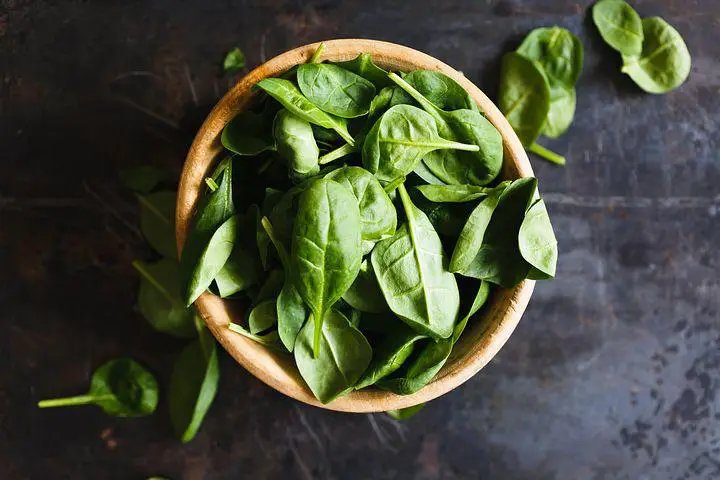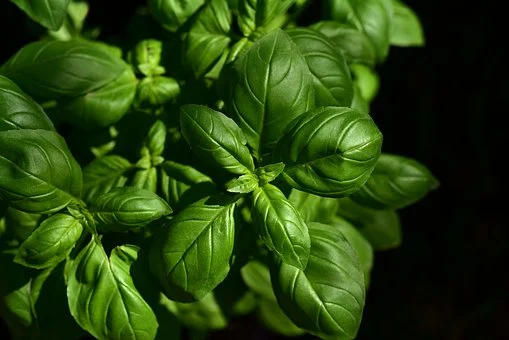If you are following a low FODMAP diet, you may be wondering if it is safe to eat basil. This herb is a common ingredient in many dishes, so it is important to know whether or not it is low in FODMAP. In this blog post, we will discuss the low FODMAP status of basil and provide some tips for incorporating this herb into your diet.
Is Basil Low FODMAP?
Basil is a common herb that is used in many dishes. It is important to know whether or not it is low in FODMAP before including it in your diet.
The short answer is yes, basil is low FODMAP. This means that you can safely eat small amounts of this herb without triggering symptoms. However, some people with IBS may be sensitive to basil, so it is always best to start with a small amount and increase as tolerated.
What Is Basil?
Basil is an herb that is part of the mint family. It is native to India and other tropical regions. Basil is a common ingredient in many dishes, such as antipasto, Thai curry, and Italian pasta sauce. This herb has a sweet, spicy flavor that can add depth and dimension to any dish.

Including Basil In Your Diet
If you are following a low FODMAP diet, you can safely eat small amounts of basil. This herb is a great way to add flavor to your food without triggering symptoms. Here are some tips for incorporating basil into your diet:
- Add basil to soups, stews, or sauces for extra flavor.
- Make a pesto sauce using low FODMAP ingredients like olive oil, Parmesan cheese, and garlic-infused oil.
- Use basil to top off a dish of roasted vegetables or grilled chicken.
- Add a handful of basil leaves to your favorite salad recipe.
10 Benefits Of Basil With Low FODMAP
Basil is a low FODMAP herb that can be safely consumed by those following the diet. This herb is not only safe, but it also offers a variety of health benefits. Here are ten benefits of basil
- Basil is a good source of vitamins A and K.
- It can help to boost your immune system.
- Basil is an anti-inflammatory herb.
- It can help to improve digestion.
- Basil can help to reduce bloating and gas.
- It is a natural detoxifier.
- Basil can help to fight depression and anxiety.
- It is a good source of antioxidants.
- Basil can help to improve cognitive function.
- It can help to protect against certain cancers.
As you can see, basil is a versatile and healthy herb that can be enjoyed by those following a low FODMAP diet
How To Prepare Basil With Low FODMAP?
If you are looking for ways to incorporate basil into your diet, there are a few things to keep in mind. When cooking with basil, it is important to use fresh leaves rather than dried herbs. Dried herbs can be high in FODMAPs, so they should be avoided from the diet.
It is also important to chop the basil leaves before adding them to your dish. This will help to release the flavor and make the leaves easier to digest. When chopping basil, be sure to use a sharp knife and chop in small pieces.
If you are using basil in a cooked dish, you can add it at the beginning of cooking. This will give the herb time to release its flavor into the dish. If you are using basil in a raw dish, like a salad, you can add it just before serving.
Ingredients
- Fresh basil leaves
- Sharp knife
- Cutting board
Here Are Some Recipes That Feature Basil
- Spaghetti with Basil Pesto Sauce
- Roasted Vegetable Salad with Basil Vinaigrette
- Grilled Chicken with Basil Chimichurri Sauce
- Thai Curry with Basil and bamboo shoots
- Caprese Salad with Basil and Mozzarella Cheese
As you can see, there are many ways to enjoy basil without triggering symptoms. With a little creativity, you can easily incorporate this herb into your diet.
How Do I Know If Basil Is Fresh?
When buying basil, look for leaves that are deep green in color and free from brown spots. The leaves should be crisp and not wilted. You can also check the stems of the basil plant. They should be firm and not yellow or brown.
If you are growing your own basil, you can tell if the herb is fresh if it has a strong fragrance. Fresh basil leaves will also be bright green in color. You can snip off a leaf and taste it to see if it is fresh. If the leaf is bitter, it is past its peak and you should discard it.
When storing basil, be sure to keep the leaves dry. Wet leaves will quickly turn brown and wilted. Place the basil in a container with a lid and store it in the refrigerator. Basil leaves can also be frozen for long-term storage.
What Is The Taste And Texture Of Basil Low FODMAP?
Basil is a fragrant herb that has a sweet, peppery flavor. The leaves are soft and slightly hairy. When cooked, the flavor of basil is released and it becomes more pungent and which is similar to flaxseed.
Basil is a versatile herb that can be used in a variety of dishes. It is commonly used in Italian and Thai cuisine. Basil is also a popular ingredient in pesto sauces and salad dressings.
How Do I Store Basil With Low FODMAP?
Basil is a delicate herb that should be stored properly to maintain its freshness. Basil leaves can be stored in the refrigerator for up to one week. Place the basil in a container with a lid and make sure the leaves are dry. Wet leaves will quickly turn brown and wilted.
If you need to store basil for longer than one week, you can freeze the leaves. To freeze basil, place the leaves in a freezer-safe container and store them for up to six months. When you are ready to use the frozen basil, thaw it in the refrigerator overnight.

Can I Eat Basil With Low FODMAP?
Yes, you can eat basil with low FODMAP. Basil is a versatile and healthy herb that can be enjoyed by those following a low FODMAP diet.
Conclusion
Basil is a fragrant and flavorful herb that is safe to eat on a low FODMAP diet. When cooking with basil, be sure to use fresh leaves and chop them before adding them to your dish. Basil can be used in cooked or raw dishes and is a popular ingredient in many cuisines. Store basil properly to maintain its freshness and flavor.
4
Leave a Reply